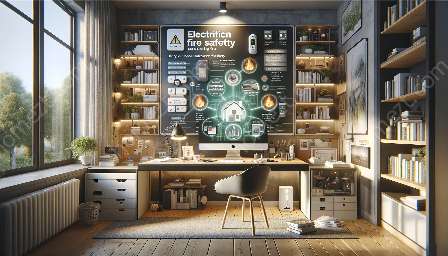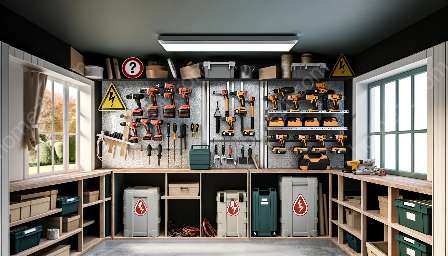When it comes to DIY electrical work, it's essential to understand the risks involved and take necessary precautions to ensure home electrical safety and security. This comprehensive guide discusses the potential hazards of DIY electrical projects, the precautions to be taken, and how these measures contribute to overall home safety and security.
Understanding the Risks of DIY Electrical Work
Engaging in DIY electrical work without adequate knowledge and experience can pose significant risks. Here are some of the common hazards associated with DIY electrical projects:
- Electrocution: Working with live electrical wires or improperly handling electrical components can lead to severe electric shocks or even fatalities.
- Fire Hazard: Poorly executed electrical work can result in short circuits, overloading of circuits, and other issues that may lead to electrical fires.
- Property Damage: Inadequate electrical installations or repairs may damage appliances, electronic devices, and the overall electrical system of the home.
- Legal Consequences: In many regions, performing electrical work without proper permits and qualifications is illegal and can result in fines or legal action.
Precautions for DIY Electrical Work
To mitigate the risks associated with DIY electrical work, it's crucial to follow these precautions:
- Education and Training: Acquire adequate knowledge through reputable sources and consider attending electrical safety workshops or courses.
- Use of Safety Gear: Always wear appropriate personal protective equipment, including insulated gloves, goggles, and non-conductive footwear.
- Turn Off Power: Prior to commencing any electrical work, ensure that the power supply to the area is turned off at the main electrical panel.
- Testing Equipment: Use voltage testers and other appropriate tools to confirm that circuits are de-energized before touching any wires or components.
- Permits and Codes: Familiarize yourself with local electrical codes and regulations, and obtain necessary permits before starting any significant electrical work.
- Seek Professional Help: For complex or high-risk electrical tasks, it's best to hire a licensed electrician to ensure the work is carried out safely and in compliance with regulations.
Contributing to Home Safety & Security
By prioritizing electrical safety in DIY projects, homeowners can significantly enhance the overall safety and security of their homes. Safe electrical practices contribute to the prevention of electrical hazards, reducing the likelihood of electrical fires, injuries, and property damage. Proper electrical work also ensures compliance with legal requirements, giving homeowners peace of mind and protecting them from potential legal consequences.
Ultimately, understanding the risks and taking necessary precautions when engaging in DIY electrical work not only safeguards individuals and their properties but also fosters a secure and comfortable living environment.



















